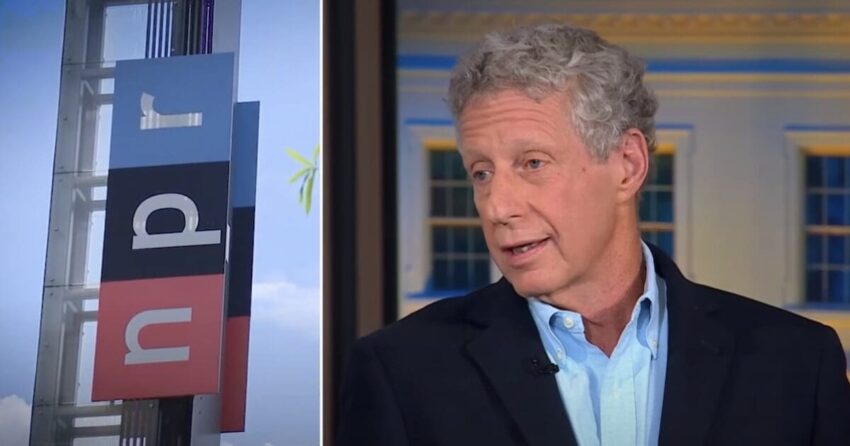Congress’s action impacting NPR teed up a chance for whistleblower Uri Berliner to land another shot against his former outlet’s “fringe progressivism.”
In spring 2024, at the same time that then-former President Donald Trump was promising he would cut the funding for the “liberal disinformation machine,” a 25-year veteran editor faced suspension for calling out the outlet’s bias. Little more than a year after he ultimately resigned, Berliner returned to The Free Press, where he’d blown the whistle on NPR, to dig at the outlet now “subject to the same financial and competitive pressures as everyone else.”
Having become a contributing editor with The Free Press, Berliner celebrated NPR’s “Happy Independence Day” in a Thursday op-ed ahead of the House’s final vote on the president’s rescission package that withdrew $1.1 billion from the Corporation for Public Broadcasting, which contributes taxpayer dollars to NPR, PBS, and local broadcast stations.
“It’s a self-inflicted wound, a product of how NPR embraced a fringe progressivism that cost it any legitimate claim to stand as an impartial provider of news, much less one deserving of government support,” wrote the NPR whistleblower.
“The vote is a victory for Republicans who have long had National Public Radio (NPR) in their sights. But it is also a victory for those of any political stripe who believe the government has no business funding the media,” he stated.
The Free Press is the same outlet in which Berliner criticized NPR, while still a senior editor there, for an alleged lack of “viewpoint diversity” while featured stories peddled the Russian collusion hoax, aimed to discredit the COVID lab leak theory, and opted out of covering the Hunter Biden laptop story prior to the 2020 presidential election.
Berliner’s op-ed found him suspended, leading to his resignation from NPR, where he argued he was “disparaged by a new CEO whose divisive views confirm the very problems at NPR” cited in his essay, as CEO Katherine Maher’s previous comments about the “challenge” of the First Amendment became a focal point.
NPR’s Uri Berliner resigns – blasts CEO who sees 1st Amendment used to defend old posts as ‘a challenge’ https://t.co/EnQgKpStxK via @BIZPACReview
— BPR (@BIZPACReview) April 17, 2024
Even as Maher took to the airwaves to deny bias at NPR, the editor contended in his piece that, since his departure, “under the leadership of a divisive new CEO, instead of taking criticisms of its coverage to heart, NPR instead doubled down on agenda-driven journalism.”
He argued that the outlet “became a boutique product for a well-heeled audience clustered around coastal cities and college towns,” that “shed moderate and conservative listeners.”
“Once fairly evenly divided between liberals, moderates, and conservatives, NPR’s news audience shifted sharply to the left,” noted Berliner, who previously suggested NPR voluntarily cease accepting federal funding, which he assessed amounted to anywhere between 5-10% of its budget.
Boiling down the impact that the rescissions package would have on his former employer, the editor stated, “Now NPR will be like any other media organization, free to be as partisan as it chooses, stripped of its unique claim to taxpayer support, still protected by the First Amendment, but subject to the same financial and competitive pressures as everyone else.”
Click this link for the original source of this article.
Author: Kevin Haggerty
This content is courtesy of, and owned and copyrighted by, https://americanwirenews.com and its author. This content is made available by use of the public RSS feed offered by the host site and is used for educational purposes only. If you are the author or represent the host site and would like this content removed now and in the future, please contact USSANews.com using the email address in the Contact page found in the website menu.








